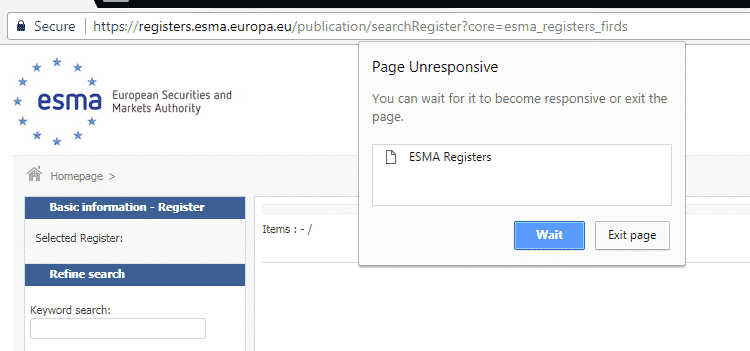This article was written by G. Scott Paterson, technology and media venture capitalist and Executive Chairman of FutureVault.
The cloud has become more than an abstract concept in our lives. It’s where we store music, movies, photos and lots and lots of data. For financial firms, the cloud is going to increasingly become a crucial part of dealing with customers over the next five years and beyond.
Already, it is where much of our financial data and communications live. Because it will be a place to store important financial documents and share records, security will continue to be of paramount importance. Here are seven things you should know about the future of digital storage:
Whether you are prepared or not, digital storage is coming
Within five years, banks, mutual funds, wealth managers, law firms, insurers and others will offer clients digital storage for things like bills and statements to wean them off of paper. Today, only 12 to 15 percent of bills and statements are delivered electronically, so there’s a lot of work still to do. PwC’s report, “Financial Services Technology 2020 and Beyond: Embracing Disruption,” predicts the public cloud will become the dominant infrastructure model in financial services by 2020 and says it is vital that firms build their cloud capabilities to become more responsive to customers’ needs.
Total cloud IT infrastructure spending grew 26 percent in 2015, reaching $33.4 billion, one-third of all IT spending, according to IDC. That suggests that we can expect more innovative products to move the technology ahead in leaps and bounds.
The cloud will organize us
Today, too many people just dump files in one “documents” folder on a home computer or in a basic online cloud service warehouse that moves that chaos to the cloud. Consumers want documents that they can find later in a system of folders and subfolders that’s easy to understand. Imagine if all the financial firms you dealt with sent your documents electronically, automatically arriving in the correct folder, whether that’s monthly bills, quarterly wealth statements or documents for tax returns.
Smart firms will learn how customers want to organize their lives and will work to anticipate those needs. We’ve grown used to Google finishing our online searches and Amazon suggesting items we might like to purchase. Similarly, customers will favor digital storage solutions that make sense of the mess of our lives.
No more missed deadlines
Our financial lives are getting more complex with myriad deadlines, ranging from renewing warrants and stock options to paying subscription fees for domain names. Of course, digital storage solutions will help customers set reminders, but Analytics will take things further, allowing cloud solutions to scan documents, learn when deadlines occur and inform customers when to act. Missed deadlines will be a thing of the past.
Transparency is a win-win
Digital storage has a recorded and tracked fiduciary trail because every move financial professionals (and customers) make in digital storage accounts can be tracked. Financial institutions can track the documents that have been viewed and downloaded and the customer has a permanent record of those actions too.
With a growing number of regulations about the fiduciary responsibility of financial institutions to their customers, seamless tracking will protect both advisors and their customers affording a new level of transparency and trust between parties.
Security is a priority
Among financial services firms not adopting cloud technology, 100 percent cited security concerns as the reason, according to a survey by the Cloud Security Alliance. Some 60 percent ranked data confidentiality as their highest security concern, a loss of control of data was a concern for 57 percent, and data breach was a worry for 55 percent.
Still, the report noted that, “As better tools for auditing and data protection become more mainstream, companies will feel more comfortable moving critical data to the cloud, while maintaining its security.” To be sure, any technology storing our most important documents requires top-notch encryption and must conform to compliance regulations. When done correctly, storing files in the cloud is safer because customers no longer have local files saved on vulnerable home computers or mobile devices, so if a personal device is hacked or lost, data remains safe.

Bloomberg
Big Data Will Teach Us
Once financial institutions convince customers to ditch paper statements, go digital and embrace cloud storage, they can use the digital experience to grow their business. For example, banks could use demographic data to market mortgage offers to people thinking about buying homes, adding those offers to electronic bank statements.
Wealth managers can use all manner of public data to build a more complete portrait of each customer and serve customers more effectively as a result. Incorporating data into digital marketing efforts boosts profits — when Amazon added personalized recommendations, its revenues grew 29 percent.
Digital storage will change how we do business
In the past, tasks like applying for a mortgage or preparing taxes, required the customer to do the heavy lifting of compiling documents. In the age of digital storage, service providers will be responsible for retrieving, organizing and managing documents by accessing the end users’ digital storage account, removing much of the burden from the customer. Financial institutions that Leverage cloud storage solutions to simplify how consumers conduct business, from applying to loans to purchasing warranties and subscriptions, will gain market share by adding value to clients’ lives.






















